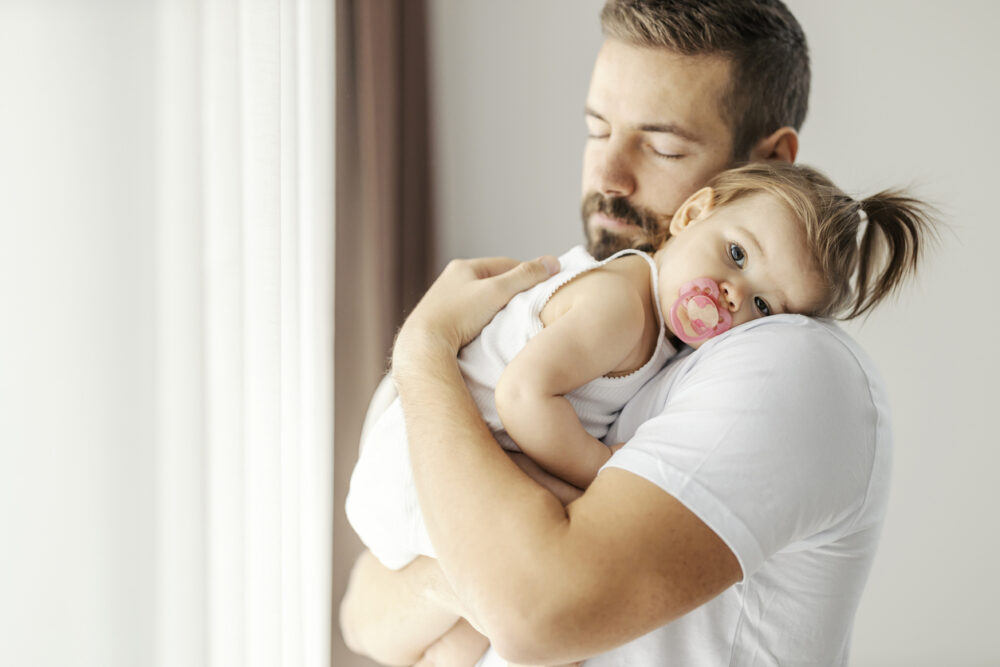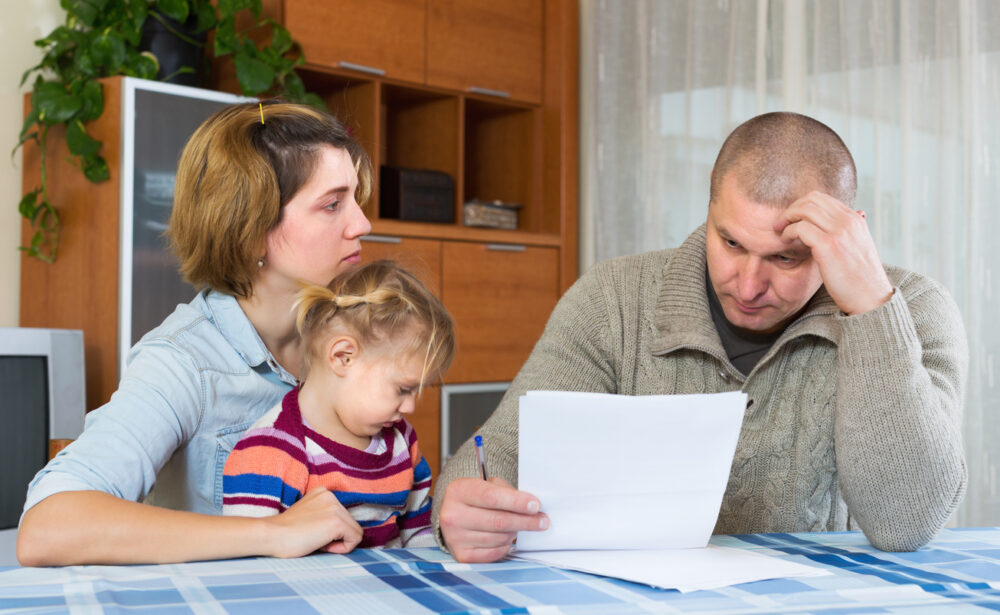Having kids today might wreck your finances more than you think.

There was a time when raising a family felt financially doable. You found a steady job, bought a modest home, and figured things out as you went. But these days, many would-be parents are taking a long pause—and with good reason. The economic pressures are real, and they’re not just about diapers and daycare. We’re talking about a system where inflation eats your paycheck, housing feels out of reach, and childcare rivals your rent.
Raising kids in 2025 requires serious planning and painful trade-offs. For some people, the dream of a big family is colliding with the reality of stagnant wages and rising expenses. There’s no shame in holding off, downsizing that dream, or even walking away from it altogether. These nine reasons don’t mean you can’t have kids—they just highlight the financial landmines waiting for anyone who hasn’t considered the full picture. If you’ve ever felt unsure about whether now is the right time, these economic reasons might give you some clarity before you jump into something that could stretch you far beyond your limits.
1. Childcare costs now rival a second mortgage.

In many parts of the country, full-time childcare costs as much as—or more than—a monthly house payment. That’s not a dramatic exaggeration. Depending on your location, infant care can run anywhere between $800 to $2,000 a month. That’s before you even get to preschool tuition, after-school programs, or summer care. If both parents are working, it becomes a constant numbers game—one paycheck often goes entirely toward keeping the child in daycare.
This setup forces hard choices. Do you leave your job and lose income to care for your child, or stay in the workforce just to break even? Neither option feels great when you’re already juggling bills, inflation, and housing pressures. For families without nearby relatives to pitch in, there’s often no affordable solution. The emotional stress of having to choose between your career and your child’s care adds to the financial strain, making it easy to see why many are saying, “Not yet”, according to Paige Gawley at Vice.
2. Housing prices are squeezing families out.

The days of buying a starter home in your twenties are long gone for most. Now, even modest homes are priced like luxury items in many cities. Rent isn’t much better—families needing more than a one-bedroom unit face serious sticker shock. As a result, people are delaying parenthood or deciding against having more children, simply because they don’t have the space—or the financial room—to grow.
Adding a child to a cramped apartment isn’t just about square footage. It’s about sleep, sanity, and safety. A bigger home often comes with higher property taxes, utility bills, and maintenance costs. Many families hoping to upgrade get stuck in bidding wars or locked out of the market entirely. This leads to frustration and postponement, because raising kids without adequate housing isn’t just inconvenient—it’s emotionally and financially unsustainable, as reported by Hillary Hoffower at Business Insider.
3. Health insurance and medical costs keep climbing.

Having a baby in the U.S. can cost anywhere from $5,000 to $15,000, even with insurance, as stated by the experts at the Berkely Economic Review. That’s just for the delivery. Routine pediatric visits, unexpected ER trips, vaccinations, and ongoing care quickly pile on, and if your child has even minor health complications, costs can balloon overnight. A decent insurance plan is no longer a guarantee that you’ll be protected from massive bills.
Families often underestimate how much health care eats into their budget. Premiums rise yearly, and high deductibles mean you’re paying a lot out of pocket before coverage kicks in. For gig workers or people without employer-backed insurance, the situation is even worse. Parenthood shouldn’t be a luxury reserved for those with platinum coverage, but that’s what it’s starting to feel like. Many are choosing to wait or forego children simply because the health-related costs are too risky to take on.
4. College savings feel impossible to even start.

The idea of putting money away for your child’s future used to feel like a responsible long-term goal. Now it just feels laughable. When you’re barely covering groceries and rent, stashing $100 a month into a 529 plan feels like a fantasy. But with college tuition rising faster than inflation, families who aren’t saving early may be setting themselves—or their future kids—up for crushing debt.
This looming burden adds another layer of pressure to the parenting equation. It’s not just about feeding and clothing a child today; it’s about imagining how you’ll help them launch 18 years from now. If you can’t picture covering even part of that cost, the idea of having a baby might start to feel reckless instead of rewarding. It’s a future worry, yes—but one that smart planners are factoring in right now.
5. Dual-income survival is now the norm, not a luxury.

In previous generations, one parent could often stay home, or at least work part-time, while the other brought in enough to keep things afloat. That’s no longer the case for many modern families. Even with two full-time jobs, many households are just barely breaking even, thanks to housing, health care, student loans, and everyday living costs that have outpaced income.
Having children often means one parent will have to reduce hours, step away temporarily, or take a job with more flexibility (and likely, less pay). That loss of income isn’t easy to absorb when every dollar is already spoken for. Parents may re-enter the workforce later at a disadvantage, losing career momentum or growth opportunities. When survival already requires two steady paychecks, adding a dependent becomes a financial leap many aren’t ready—or willing—to take.
6. Emergency funds take a huge hit with kids.

Unexpected expenses hit differently once you’re a parent. It’s not just flat tires or broken appliances anymore—it’s urgent doctor visits, sudden school fees, or replacing lost items that were expensive to begin with. Kids introduce a level of financial unpredictability that’s hard to cushion against, especially when your emergency fund is already small or nonexistent.
The truth is, many families go into parenthood without a strong financial cushion. But once you’re there, that lack of savings becomes a constant source of anxiety. A minor setback can spiral quickly into debt. If you’re already struggling to build up three to six months of living expenses, adding a child may push your savings goals even further out of reach. Without that buffer, the stress of financial uncertainty multiplies fast.
7. Inflation is turning basic necessities into luxuries.

Everything costs more now. Groceries, gas, clothing, and utilities have all crept up—or in some cases, shot up—over the past few years. While everyone feels the squeeze, families are hit harder. A single shopping trip to buy food and diapers can feel like a gut punch. When basic items start to feel like luxuries, having a child becomes a much heavier financial decision.
You can’t budget your way out of this kind of inflation. Parents are already cutting corners, buying in bulk, couponing, and still struggling to stay afloat. This cost pressure adds a level of day-to-day anxiety that chips away at your quality of life. When you’re constantly worried about covering the essentials, expanding your family can feel like taking on a weight you’re not sure you can carry.
8. Paid parental leave is still a rare privilege.

Despite all the progress in workplace rights, the U.S. still lags behind in providing paid parental leave. Many workers, especially in service industries and small businesses, don’t have access to even a few weeks of paid time off after having a child. That means relying on savings, unpaid leave, or going back to work far earlier than feels healthy or safe.
This lack of support makes planning for a baby even more stressful. If you’re forced to choose between bonding with your newborn and paying the rent, it’s hard to feel good about either choice. The absence of a consistent, national policy around parental leave signals that you’re mostly on your own. For many couples, that’s reason enough to delay parenthood until they’re in a much more financially secure position—if that day ever comes.
9. The mental load adds financial consequences too.

It’s not just the money—it’s the mental math that wears you down. Keeping track of schedules, appointments, school forms, activities, and emotional needs takes time and energy. Often, this invisible labor falls to one parent, reducing their capacity to focus at work, take on promotions, or pursue growth opportunities. Over time, that emotional labor translates into lost income and missed advancement.
This constant juggling act has a real cost. If you’re already stretched thin, adding a child means something else has to give—and it’s usually your own goals or mental well-being. The pressure to do it all, be everything, and keep all the plates spinning can quietly wreck your finances in the long run. Even if you’re technically “making it,” the emotional toll can bleed into your work life and career choices, making it harder to thrive.
